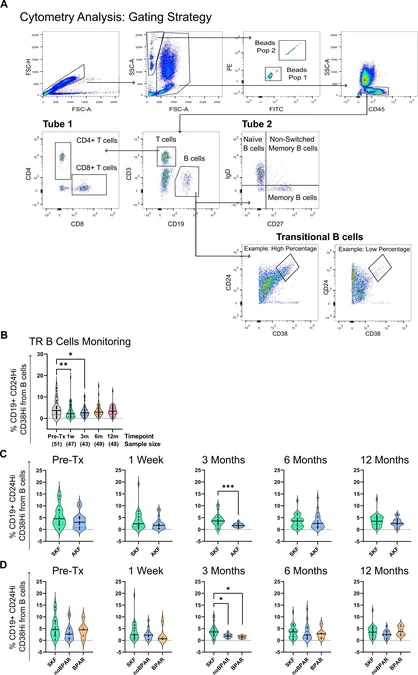
Game-Changing Research: Deprescribing Antihypertensives Could Halt Cognitive Decline in Nursing Home Residents!
2024-09-27
Introduction
Recent research indicates that reducing antihypertensive medications may offer remarkable benefits for elderly individuals residing in long-term care facilities, particularly in terms of slowing cognitive decline. A groundbreaking study conducted by the Veterans Health Administration highlights significant findings that could reshape current practices in managing hypertension among nursing home patients.
Study Findings
The study reveals that elderly patients who had their blood pressure (BP) medications deprescribed—either through reducing the overall number of medications or by lowering dosages—experienced a slower rate of cognitive decline compared to those who continued their usual medication regimen. This effect was especially notable among patients diagnosed with dementia, who benefitted significantly from the reduction in drugs.
Research Leader's Remarks
Lead researcher Michelle C. Odden, PhD, expressed enthusiasm for these findings, stating, "This is reassuring news for patients and healthcare providers contemplating the reduction of antihypertensive medications in a nursing home setting." She emphasized the need for more research on the effects of decreasing medication use, contrasting it with the more common studies focused on the benefits of adding new medications.
Broader Implications
The implications of this study could be profound, especially as the aging population increases. It highlights the crucial need for patient-centered approaches when it comes to medication management, emphasizing cognitive health while minimizing the risks associated with polypharmacy—where patients are prescribed multiple medications that may lead to adverse effects.
Discussion on Blood Pressure and Cognitive Health
Further analysis showed that while elevated blood pressure is often linked to cognitive decline in younger individuals, the findings suggest that in older patients, including those with vascular-related brain issues, slightly higher BP levels might be necessary for ensuring adequate cerebral blood flow. Dr. Odden notes, "This is a hypothesis that warrants further exploration."
Study Insights and Data
The research team, including Bocheng Jing, MS, analyzed data from 12,644 veterans, with a focus on those aged 77.7 years on average. The study employed an observational design—comparing patients who maintained their medication regimen with those who had undergone a deprescribing process—evaluating cognitive performance over a substantial follow-up period.
Results indicated that while 12% of patients experienced a worsening of their cognitive function, those undergoing deprescribing showed a reduced rate of decline, particularly those with dementia. Specifically, patients in the deprescribing group had 12% lower odds of progressing to a worse cognitive status compared to their counterparts who maintained stable medication levels.
Supporting Previous Research
In addition to supporting the findings from previous studies like the OPTIMISE trial—which found that deprescribing didn't adversely affect blood pressure control—this new research brings urgent attention to the growing concern of managing chronic diseases among an aging demographic. With projections that 61 million baby boomers will reach retirement age by 2030, the need for effective, safe, and tailored medication strategies becomes more pertinent than ever.
Looking Ahead
As the conversation around deprescribing gains traction within the healthcare community, it is clear that both patients and providers are eager to engage in discussions about the risks and benefits of reducing medications. Deprescribing networks in the United States and Canada continue to emerge, providing valuable resources to help navigate these challenges.
In a rapidly aging society, the findings of such studies underscore the importance of reassessing medication regimens to safeguard cognitive health while managing conditions like hypertension. The path forward must include more rigorous research to thoroughly understand the long-term effects of deprescribing, especially regarding the potential risks of heart attacks, strokes, and other cardiovascular events among older adults.
As we march toward 2030, the call to action is clear: prioritize cognitive well-being in our elderly by considering the role of medication management in nursing homes. Stay tuned for further developments in this pivotal field of research!



 Brasil (PT)
Brasil (PT)
 Canada (EN)
Canada (EN)
 Chile (ES)
Chile (ES)
 España (ES)
España (ES)
 France (FR)
France (FR)
 Hong Kong (EN)
Hong Kong (EN)
 Italia (IT)
Italia (IT)
 日本 (JA)
日本 (JA)
 Magyarország (HU)
Magyarország (HU)
 Norge (NO)
Norge (NO)
 Polska (PL)
Polska (PL)
 Schweiz (DE)
Schweiz (DE)
 Singapore (EN)
Singapore (EN)
 Sverige (SV)
Sverige (SV)
 Suomi (FI)
Suomi (FI)
 Türkiye (TR)
Türkiye (TR)